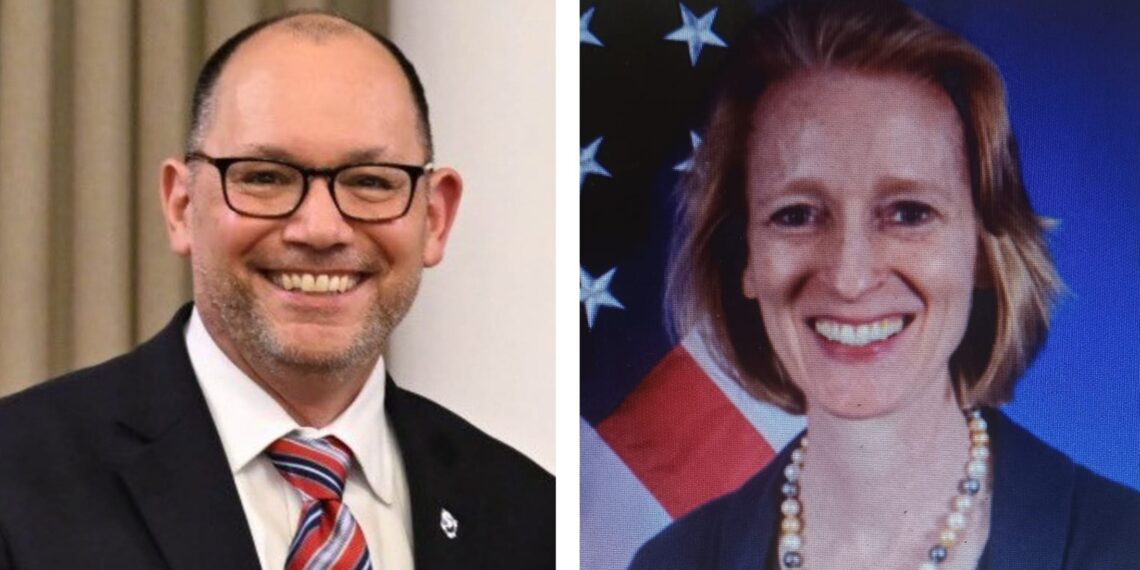A month short of this time two years ago, the US embassy in Dhaka had begun making noises about “free and fair” elections in Bangladesh.
In May 2023, the then American Ambassador to Bangladesh, Peter Haas held out the first veiled threat of imposing visa sanctions against anyone who might try to undermine the democratic electoral process or come in the way of free and fair elections.
The shrill cacophony over the demand for free and fair polls continued uninterrupted till at least the early days of November 2023 when, following a final written ‘appeal’ to all the political parties, Haas and the then US Assistant Secretary of State for South and Central Asia, Donald Lu, fell silent. So did the State Department.
Then came the fraudulent elections of January 7, 2024, which the Awami League’s official candidates won ‘handsomely’ against a set of “dummy” nominees.
Once the farcical spectacle was over, Haas and company went about their normal diplomatic duties. Even Lu flew over to Dhaka to say that all was well.
It took six months before the students’ agitation began in a way that ultimately led to the toppling of the Sheikh Hasina regime in August 2024.
Now, contrast the almost daily dose – and pressure – of “free and fair” elections with the stoic silence of US embassy diplomats as well as the State Department while some of Bangladesh’s political parties, chiefly the BNP, seek early elections so that a government accountable to the people of Bangladesh is concerned.
Even US embassy’s allies in Dhaka – essentially think tanks – now show little or no interest in early elections.
Haas left for his home country in the third week of July 2024 once the students’ movement went underway.
For months, the ambassadorial position remained vacant, only to be filled by a charge d’affaires in January this year – a former ambassador.
No formal ambassador has been posted to Dhaka yet and there is no sign that Foggy Bottom is in a hurry to send one.
Meanwhile, the Mohammad Yunus-led interim authority, an unaccountable administrative entity by all means, stumbles from one blunder to another while at the same time laying the grounds for the entry of the US – surreptitiously and clandestinely, of course – into Myanmar’s conflict quagmire.
Indeed, the US objective, ever since its officials sought to “get involved” in Myanmar’s Rakhine State, is shrouded in mystery even as such an operation is an integral part of the US’ Burma Act.
There have been quiet and below-the-radar visits of American military officials to Dhaka.
Today, three State Department officials, including the US charge d’affaires in Naypidaw landed in Dhaka.
Susan Stevenson, the charge d’affaires in Naypidaw has an intelligence background while the other two are Assistant Secretaries of State for South and Central Asia and East and Southeast Asia.
These three officials will be in Dhaka for at least a week and during which time they will meet a host of advisers in the Yunus-led administration and perhaps even Army chief General Waker-uz-Zaman.
They are expected to provide the directions in which the interim authority should move and continue to facilitate the US’ involvement in Myanmar in general and the Rakhine State in particular.
The Bangladesh Army will certainly play a crucial role in the US’ scheme of things in the Rakhine State.
There is no knowing how long it will take the US, using proxies, to force the situation in its favour – first in the Rakhine State and later beyond this province.
It could take a few months, or it could take a year, or it could stretch to three and maybe even four years. That is the nature of proxy military entanglements.
Surely, the Chinese, who support the Myanmar military junta, will not stand idly by squander away their strategic gains.
Make no mistake: the US will do everything in its power to allow the Yunus-led interim authority, exempt domestically from being called to account (as it is unelected), to continue in power as there is a larger military goal in the near future.
Not even the entreaties of the BNP – the largest political party now in Bangladesh in the absence of a functional Awami League – for early elections will be considered.
An immediate consequence of this carefully planned and programmed delay in holding elections will have a consequence: it will embolden the hand of the Islamist forces, already on the upswing in Bangladesh.
Not only will this lease on life will allow them to legitimise their presence, there is every possibility of the outbreak of violence and other Islamist depredations within and outside Bangladesh.
This brings in India. It will be interesting to watch how the Indian security establishment reacts in the event the Islamists go on the rampage and their violence spills over the borders of Bangladesh, and into India.
New Delhi has, so far, played a very ambiguous role insofar as US intent in this region is concerned.
The unfolding of events in Bangladesh, at least since August 2024, has shown that New Delhi is either lukewarm to the evolving domestic politics in Bangladesh or somehow unable to act in ways to retrieve its ground there.
The future is fraught with uncertainties.















